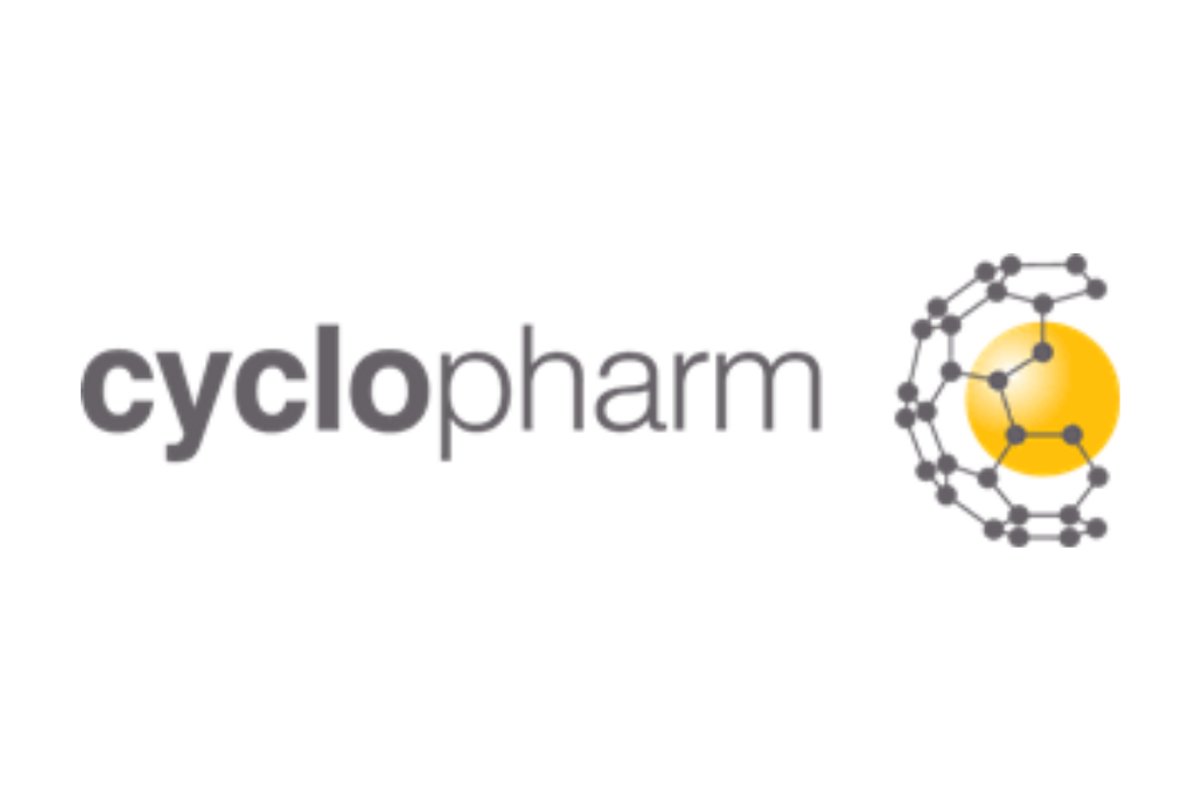- Johnson & Johnson (NYSE: JNJ) (the Company) today announced preliminary results from an independent study, including a subset of participants from the Janssen-sponsored COV2008 study, conducted by Dan Barouch M.D., Ph.D., et al. of Beth Israel Deaconess Medical Center (BIDMC), which showed that a booster shot of the Johnson & Johnson COVID-19 vaccine (Ad26.COV2.S), administered at six months after a two-dose primary regimen of BNT162b2, increased both antibody and T-cell responses. These results demonstrate the potential benefits of heterologous boosting (mix-and-match). The article describing these results have been posted on medRxiv .
"There is early evidence to suggest that a mix-and-match boosting approach may provide individuals with different immune responses against COVID-19 than a homologous boosting approach," said Dan Barouch , M.D., Ph.D., Director of the Center for Virology and Vaccine Research at BIDMC. "In this preliminary study, when a booster dose of Ad26.COV2.S was given to individuals six months after a primary regimen with the BNT162b2 vaccine, there was a comparable increase of antibody responses at week four following the boost and a greater increase of CD8+ T-cell responses with Ad26.COV2.S compared with BNT162b2."
"These results provide valuable scientific insights for our vaccine when used as a mix-and-match booster and can help inform boosting strategies with the goal to curb the pandemic," said Mathai Mammen , M.D., Ph.D., Global Head, Janssen Research & Development, Johnson & Johnson. "These data add to the growing body of evidence demonstrating that a mix-and-match booster dose of the Johnson & Johnson COVID-19 vaccine successfully increases humoral responses and cellular responses against the original strain of SARS-CoV-2, as well as the Beta and Delta variants."
These Phase 2 data are reinforced by preliminary results from the UK COV-BOOST clinical study published in The Lancet , which demonstrated that following primary vaccination with two doses of either BNT162b2 (n=106) or ChAdOx1 nCov-19 (n=108), a booster dose of the Johnson & Johnson COVID-19 vaccine increased both antibody and T-cell responses.
Cellular (T-Cell) Responses
In this preliminary study, boosting with the Johnson & Johnson COVID-19 vaccine after a primary vaccine regimen of BNT162b2 appears to lead to a greater increase in CD8+ T-cell responses than boosting with BNT162b2. These T-cell response data suggest differences between immune responses following homologous boosting with BNT162b2, and mix-and-match boosting with the Johnson & Johnson COVID-19 vaccine following a primary regimen of BNT162b2.
The Johnson & Johnson COVID-19 vaccine leverages Janssen's AdVac ® technology and cell-mediated immunity, including CD4+ and CD8+ responses. T-cells can target and destroy cells infected by the virus that causes COVID-19. Specifically, CD8+ T-cells can directly destroy infected cells and are aided by CD4+ T-cells.
Humoral (Antibody) Responses
Both the Johnson & Johnson COVID-19 vaccine and BNT162b2 as boosters led to similar neutralizing and binding antibody levels against the original SARS-CoV-2 strain, as well as the Delta and Beta variants, four weeks following the boost. However, after a mix-and-match booster dose of the Johnson & Johnson COVID-19 vaccine, antibodies continued to increase for at least four weeks whereas in individuals who received a homologous boost with the BNT162b2 vaccine, antibodies declined from week two to week four post-boost.
Neutralizing antibodies are capable of binding to the virus in a way that blocks infection and confines the virus to the upper respiratory tract. Binding antibodies can bind to the virus' spike protein and inactivate the virus through non-neutralizing antiviral functionalities.
Study Design
For this study, a specimen biorepository at Beth Israel Deaconess Medical Center (BIDMC) obtained samples from individuals who received the BNT162b2 vaccine. Participants either continued follow-up in the biorepository and were boosted with 30 ug BNT162b2 (n=24) or were enrolled in the COV2008 study (NCT04999111) and were boosted with 5, 2.5, or 1x10 10 vp of the Johnson & Johnson COVID-19 vaccine (n=41). The COV2008 study is a Johnson & Johnson sponsored, ongoing, blinded Phase 2 clinical trial (VAC31518COV2008) to evaluate its COVID-19 vaccine as a booster in adults 18 years of age and older.
The U.S. Centers for Disease Control and Prevention (CDC) Advisory Committee on Immunization Practices (ACIP) has recommended the Johnson & Johnson COVID-19 vaccine as a booster for all eligible individuals aged 18 years and older who receive an authorized COVID-19 vaccine.
Johnson & Johnson continues to submit relevant data to other regulators, the World Health Organization (WHO) and National Immunization Technical Advisory Groups (NITAGs) worldwide to inform decision-making on local vaccine administration strategies, as needed.
In collaboration with academic groups in South Africa and around the world, the Company has been evaluating the effectiveness of its COVID-19 vaccine across variants, now including the new and rapidly spreading Omicron variant . In addition, the Company is pursuing an Omicron-specific variant vaccine and will progress it as needed.
For more information on the Company's multi-pronged approach to helping combat the pandemic, visit: www.jnj.com/covid-19 .
Authorized Use
The Johnson & Johnson COVID-19 vaccine, also referred to as the Janssen COVID-19 Vaccine, is authorized for use under an Emergency Use Authorization (EUA) for active immunization to prevent Coronavirus Disease 2019 (COVID-19) caused by severe acute respiratory syndrome coronavirus 2 (SARS-CoV-2).
- Primary vaccination regimen for the Janssen COVID-19 Vaccine is a single-dose (0.5 mL) administered to individuals 18 years of age and older.
- A single Janssen COVID-19 Vaccine booster dose (0.5 mL) may be administered at least 2 months after the primary vaccination to individuals 18 years of age and older.
- A single booster dose of the Janssen COVID-19 Vaccine (0.5 mL) may be administered to individuals 18 years of age and older as a heterologous booster dose following completion of primary vaccination with another authorized or approved COVID-19 vaccine. The dosing interval for the heterologous booster dose is the same as that authorized for a booster dose of the vaccine used for primary vaccination.
IMPORTANT SAFETY INFORMATION
WHAT SHOULD YOU MENTION TO YOUR VACCINATION PROVIDER BEFORE YOU GET THE JANSSEN COVID-19 VACCINE?
Tell the vaccination provider about all of your medical conditions, including if you:
- have any allergies
- have a fever
- have a bleeding disorder or are on a blood thinner
- are immunocompromised or are on a medicine that affects your immune system
- are pregnant or plan to become pregnant
- are breastfeeding
- have received another COVID-19 vaccine
- have ever fainted in association with an injection
WHO SHOULD NOT GET THE JANSSEN COVID-19 VACCINE?
You should not get the Janssen COVID-19 Vaccine if you:
- had a severe allergic reaction after a previous dose of this vaccine
- had a severe allergic reaction to any ingredient of this vaccine.
HOW IS THE JANSSEN COVID-19 VACCINE GIVEN?
The Janssen COVID-19 Vaccine will be given to you as an injection into the muscle.
Primary Vaccination: The Janssen COVID-19 Vaccine is administered as a single dose.
Booster Dose:
- A single booster dose of the Janssen COVID-19 Vaccine may be administered at least two months after primary vaccination with the Janssen COVID-19 Vaccine.
- A single booster dose of the Janssen COVID-19 Vaccine may be administered to individuals 18 years of age and older who have completed primary vaccination with a different authorized or approved COVID-19 vaccine. Please check with your health care provider regarding timing of the booster dose.
WHAT ARE THE RISKS OF THE JANSSEN COVID-19 VACCINE?
Side effects that have been reported with the Janssen COVID-19 Vaccine include:
- Injection site reactions: pain, redness of the skin, and swelling.
- General side effects: headache, feeling very tired, muscle aches, nausea, fever.
- Swollen lymph nodes.
- Blood clots.
- Unusual feeling in the skin (such as tingling or a crawling feeling) (paresthesia), decreased feeling or sensitivity, especially in the skin (hypoesthesia).
- Persistent ringing in the ears (tinnitus).
- Diarrhea, vomiting.
Severe Allergic Reactions
There is a remote chance that the Janssen COVID-19 Vaccine could cause a severe allergic reaction. A severe allergic reaction would usually occur within a few minutes to one hour after getting a dose of the Janssen COVID-19 Vaccine. For this reason, your vaccination provider may ask you to stay at the place where you received your vaccine for monitoring after vaccination. Signs of a severe allergic reaction can include:
- Difficulty breathing
- Swelling of your face and throat
- A fast heartbeat
- A bad rash all over your body
- Dizziness and weakness
Blood Clots with Low Levels of Platelets
Blood clots involving blood vessels in the brain, lungs, abdomen, and legs along with low levels of platelets (blood cells that help your body stop bleeding), have occurred in some people who have received the Janssen COVID-19 Vaccine. In people who developed these blood clots and low levels of platelets, symptoms began approximately one to two-weeks after vaccination. Reporting of these blood clots and low levels of platelets has been highest in females ages 18 through 49 years. The chance of having this occur is remote. You should seek medical attention right away if you have any of the following symptoms after receiving Janssen COVID-19 Vaccine:
- Shortness of breath,
- Chest pain,
- Leg swelling,
- Persistent abdominal pain,
- Severe or persistent headaches or blurred vision,
- Easy bruising or tiny blood spots under the skin beyond the site of the injection.
These may not be all the possible side effects of the Janssen COVID-19 Vaccine. Serious and unexpected effects may occur. The Janssen COVID-19 Vaccine is still being studied in clinical trials.
Guillain Barré Syndrome
Guillain Barré syndrome (a neurological disorder in which the body's immune system damages nerve cells, causing muscle weakness and sometimes paralysis) has occurred in some people who have received the Janssen COVID-19 Vaccine. In most of these people, symptoms began within 42 days following receipt of the Janssen COVID-19 Vaccine. The chance of having this occur is very low. You should seek medical attention right away if you develop any of the following symptoms after receiving the Janssen COVID-19 Vaccine:
- Weakness or tingling sensations, especially in the legs or arms, that's worsening and spreading to other parts of the body.
- Difficulty walking.
- Difficulty with facial movements, including speaking, chewing, or swallowing.
- Double vision or inability to move eyes.
- Difficulty with bladder control or bowel function.
WHAT SHOULD I DO ABOUT SIDE EFFECTS?
If you experience a severe allergic reaction, call 9-1-1, or go to the nearest hospital.
Call the vaccination provider or your healthcare provider if you have any side effects that bother you or do not go away.
Report vaccine side effects to FDA/CDC Vaccine Adverse Event Reporting System (VAERS). The VAERS toll-free number is 1-800-822-7967 or report online to https://vaers.hhs.gov/reportevent.html . Please include "Janssen COVID-19 Vaccine EUA" in the first line of box #18 of the report form. In addition, you can report side effects to Janssen Biotech Inc. at 1-800-565-4008.
CAN I RECEIVE THE JANSSEN COVID-19 VACCINE AT THE SAME TIME AS OTHER VACCINES?
Data have not yet been submitted to FDA on administration of the Janssen COVID-19 Vaccine at the same time as other vaccines. If you are considering receiving the Janssen COVID-19 Vaccine with other vaccines, discuss your options with your healthcare provider.
Please read Emergency Use Authorization (EUA) Fact Sheet for Healthcare Providers Administering Vaccine (Vaccination Providers) including full EUA Prescribing Information available at: www.JanssenCOVID19Vaccine.com/EUA-factsheet .
About Johnson & Johnson
At Johnson & Johnson, we believe good health is the foundation of vibrant lives, thriving communities and forward progress. That's why for more than 130 years, we have aimed to keep people well at every age and every stage of life. Today, as the world's largest and most broadly-based healthcare company, we are committed to using our reach and size for good. We strive to improve access and affordability, create healthier communities, and put a healthy mind, body and environment within reach of everyone, everywhere. We are blending our heart, science and ingenuity to profoundly change the trajectory of health for humanity. Learn more at www.jnj.com . Follow us at @JNJNews.
About the Janssen Pharmaceutical Companies of Johnson & Johnson
At Janssen, we're creating a future where disease is a thing of the past. We're the Pharmaceutical Companies of Johnson & Johnson, working tirelessly to make that future a reality for patients everywhere by fighting sickness with science, improving access with ingenuity, and healing hopelessness with heart. We focus on areas of medicine where we can make the biggest difference: Cardiovascular & Metabolism, Immunology, Infectious Diseases & Vaccines, Neuroscience, Oncology, and Pulmonary Hypertension. Learn more at www.janssen.com . Follow us at @JanssenGlobal.
Cautions Concerning Forward-Looking Statements
This press release contains "forward-looking statements" as defined in the Private Securities Litigation Reform Act of 1995 regarding development, manufacture and distribution of the Johnson & Johnson COVID-19 vaccine. The reader is cautioned not to rely on these forward-looking statements. These statements are based on current expectations of future events. If underlying assumptions prove inaccurate or known or unknown risks or uncertainties materialize, actual results could vary materially from the expectations and projections of the Janssen Pharmaceutical Companies, and/or Johnson & Johnson. Risks and uncertainties include, but are not limited to: challenges and uncertainties inherent in product research and development, including the uncertainty of clinical success and of obtaining regulatory approvals; uncertainty of commercial success; manufacturing difficulties and delays; competition, including technological advances, new products and patents attained by competitors; challenges to patents; product efficacy or safety concerns resulting in product recalls or regulatory action; changes in behavior and spending patterns of purchasers of health care products and services; changes to applicable laws and regulations, including global health care reforms; and trends toward health care cost containment. A further list and descriptions of these risks, uncertainties and other factors can be found in Johnson & Johnson's Annual Report on Form 10-K for the fiscal year ended January 3, 2021 , including in the sections captioned "Cautionary Note Regarding Forward-Looking Statements" and "Item 1A. Risk Factors," and in the company's most recently filed Quarterly Report on Form 10-Q, and the company's subsequent filings with the Securities and Exchange Commission. Copies of these filings are available online at www.sec.gov , www.jnj.com or on request from Johnson & Johnson. None of the Janssen Pharmaceutical Companies nor Johnson & Johnson undertakes to update any forward-looking statement as a result of new information or future events or developments.
SOURCE Johnson & Johnson







